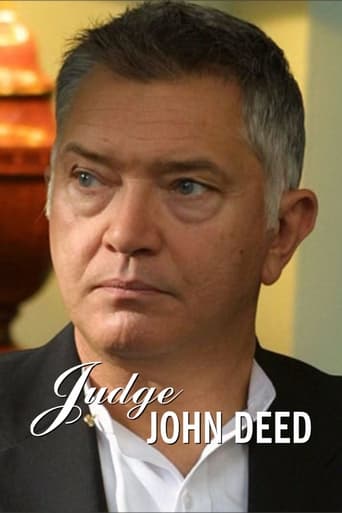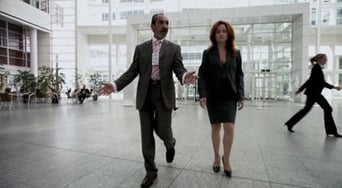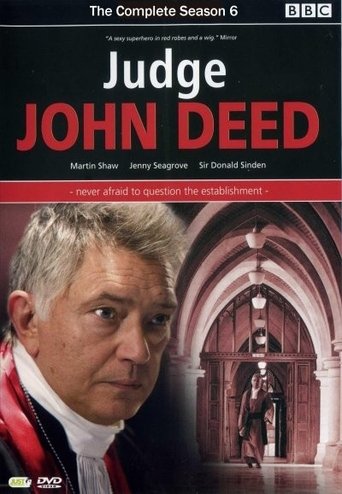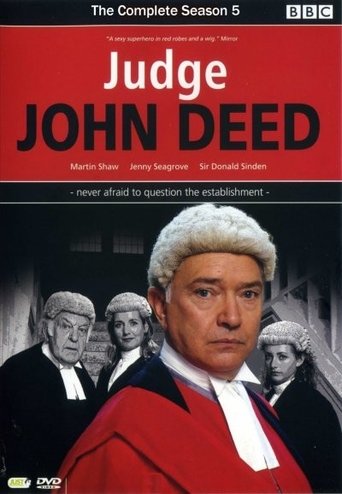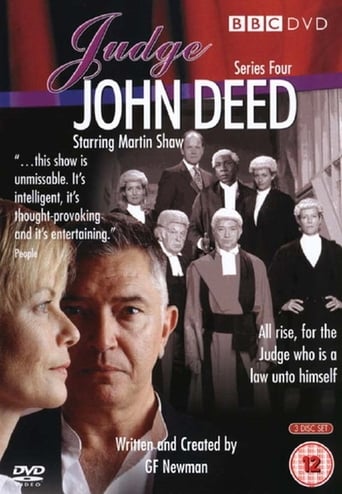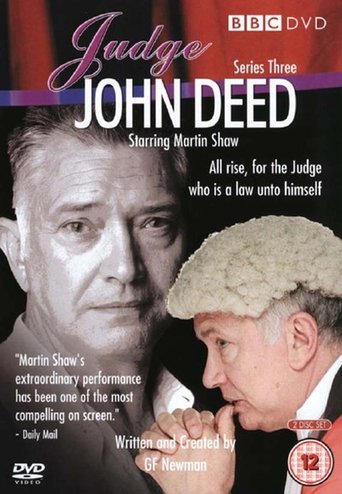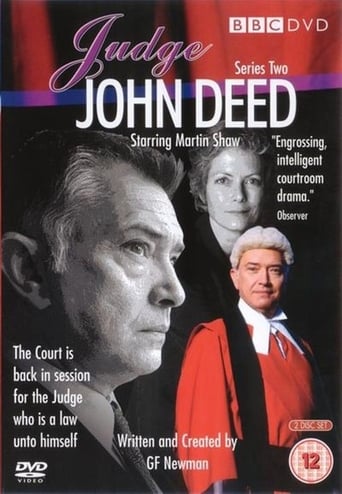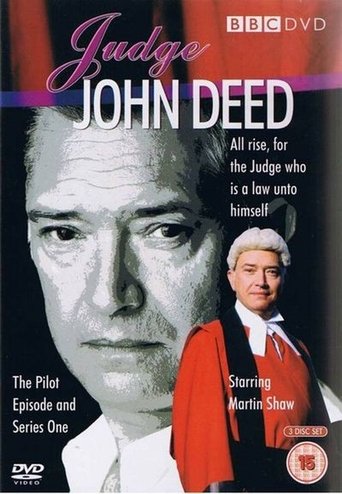Judge John Deed Season 6
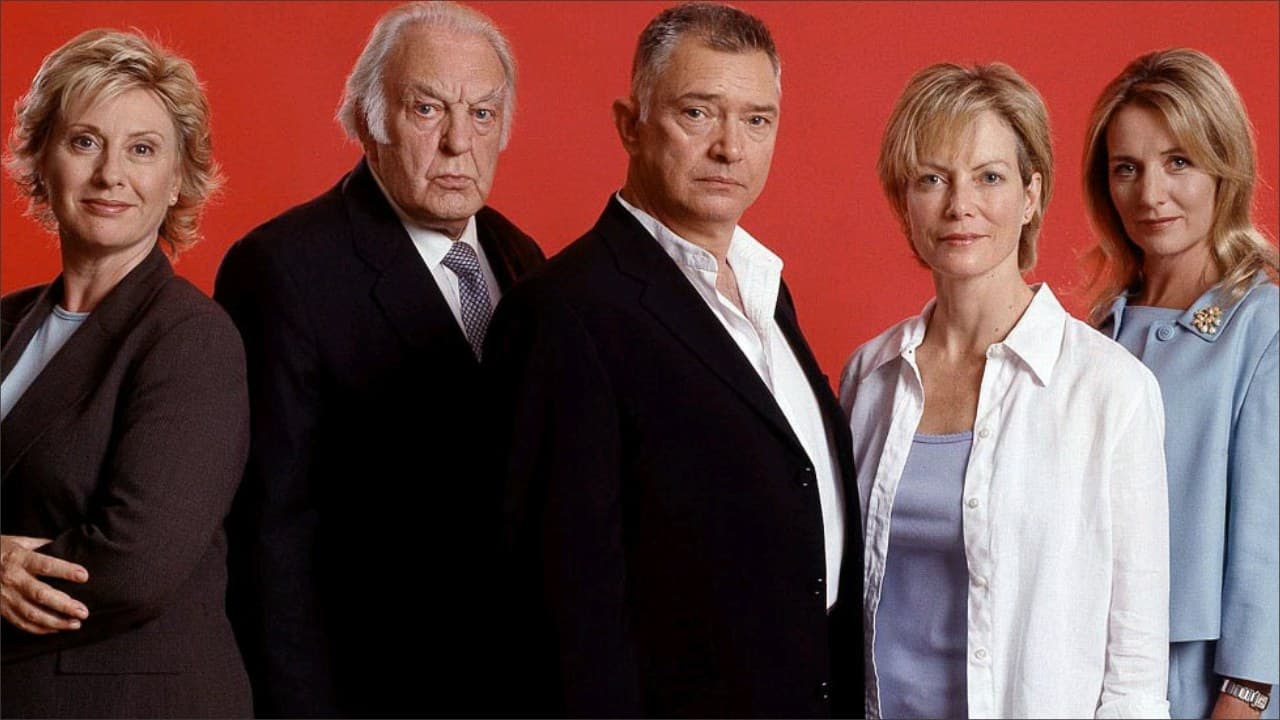
Judge John Deed is a British legal drama television series produced by the BBC in association with One-Eyed Dog for BBC One. It was created by G.F. Newman and stars Martin Shaw as Sir John Deed, a High Court judge who tries to seek real justice in the cases before him. It also stars Jenny Seagrove as the barrister Jo Mills, frequently the object of Deed's desire. A pilot episode was broadcast on 9 January 2001, followed by the first full series on 26 November 2001. The sixth and last series concluded on 18 January 2007. The programme then went on an indefinite break after Shaw became involved in another television programme, and he and Seagrove expressed a wish for the format of the series to change before they filmed new episodes. By 2009, the series had officially been cancelled. The six series produced make it the longest-running BBC legal drama. The factual accuracy of the series is often criticised by legal professionals and journalists; many of the decisions taken by Deed are unlikely to happen in a real court. The romanticised vision of the court system created by Newman caused a judge to issue a warning to a jury not to let the series influence their view of trials—referring to an episode where Deed flouts rules when called up for jury duty. Another episode led to complaints about biased and incorrect information about the MMR vaccine, leading the BBC to ban repeats of it in its original form. All six series have been released on DVD in the UK.
Watch NowWith 30 Day Free Trial!
Judge John Deed
2001 / NR
Judge John Deed is a British legal drama television series produced by the BBC in association with One-Eyed Dog for BBC One. It was created by G.F. Newman and stars Martin Shaw as Sir John Deed, a High Court judge who tries to seek real justice in the cases before him. It also stars Jenny Seagrove as the barrister Jo Mills, frequently the object of Deed's desire. A pilot episode was broadcast on 9 January 2001, followed by the first full series on 26 November 2001. The sixth and last series concluded on 18 January 2007. The programme then went on an indefinite break after Shaw became involved in another television programme, and he and Seagrove expressed a wish for the format of the series to change before they filmed new episodes. By 2009, the series had officially been cancelled. The six series produced make it the longest-running BBC legal drama. The factual accuracy of the series is often criticised by legal professionals and journalists; many of the decisions taken by Deed are unlikely to happen in a real court. The romanticised vision of the court system created by Newman caused a judge to issue a warning to a jury not to let the series influence their view of trials—referring to an episode where Deed flouts rules when called up for jury duty. Another episode led to complaints about biased and incorrect information about the MMR vaccine, leading the BBC to ban repeats of it in its original form. All six series have been released on DVD in the UK.
Watch Trailer
With 30 Day Free Trial!
Judge John Deed Season 6 Full Episode Guide
Deed delves deeper into why funding for the soldier to sue the pharmaceutical company was withdrawn and makes ever more sinister discoveries. Then the forces of reaction move to stop him.
Deed risks a constitutional crisis in pursuit of justice for a soldier?s family. Jo Mills asks him to review the withdrawal of Legal Aid funding in the case of the soldier, who committed suicide after being made ill by vaccines given to him by the British Army. Deed is reluctant, as the case has been heard and closed by another judge. His only course is to accuse the other judge of bias. When he does so, he causes consternation in the British government.
Continuing the story of a war crimes trial in The Hague. Deed finds the defendant is a victim of the British government's attempts to develop an exit strategy out of the continuing occupation of Iraq by western forces, and he has to balance the interests of justice against the possibility of saving British lives.
Deed's involvement in the case of a far-right British National Party councilor brings him to the notice of terrorists who decide to send a woman to kill him. When the assassin meets Deed, she has a surprise in store, but she still plans to carry out her orders. Meanwhile, The Lord Chancellor sends Deed to sit on an International Tribunal in the Hague, as the British government sees him as a mischief maker at home. Deed finds himself judging the case of a British soldier accused of war crimes by killing eleven Iraqi civilians.
Free Trial Channels
Seasons


